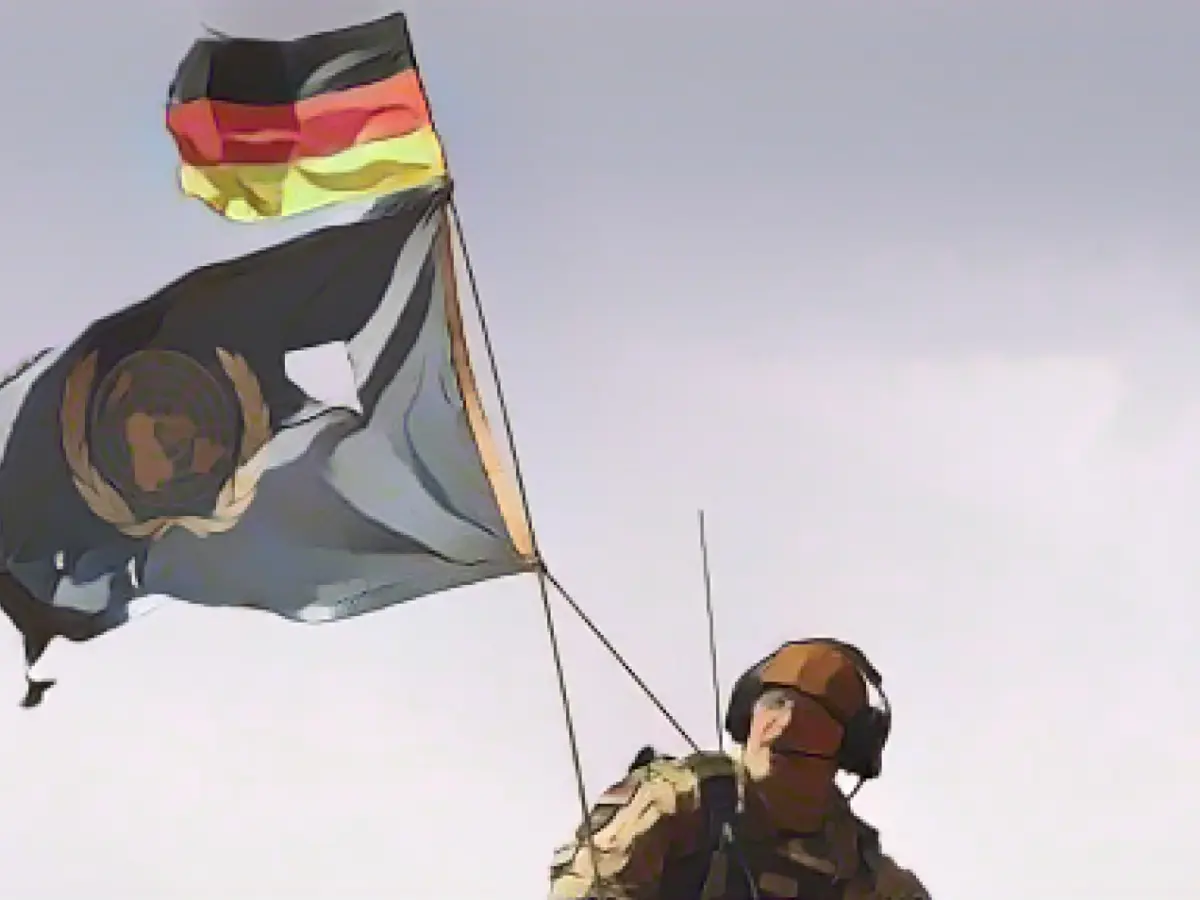German Troops Leave Mali After Decade-Long Mission
The German military, or Bundeswehr, has bid adieu to its UN mission in Mali, marking an end to over a decade of deployment. The final contingent of German soldiers vacated their Camp Castor base near Gao airport on Tuesday, bound for an Atlantic coast stopover before reaching Wunstorf airbase in Lower Saxony at a later date.
This departure signifies the Bundeswehr's second-largest overseas commitment following its stint in Afghanistan. Mali, once thought of as the most perilous assignment, has claimed two German pilots' lives in a 2017 helicopter crash and left twelve soldiers injured in a 2021 suicide attack. The Bundeswehr reports a total deployment of approximately 20,000 troops throughout the mission's tenure.
Germany's camp in Mali was formally transferred to the nation on Tuesday before the departure. Serving as a focal point of the German contribution to UN forces, the facility had been instrumental in recent years. As of the beginning of the week, there were mere fragments remaining of the German presence in the former Minusma headquarters in Bamako. The UN officially concluded their formal closing ceremony for the mission on Monday, with blue helmets hailing from 53 nations contributing to the operation.
Mali's Government Demands UN Exit
In mid-June, Mali's military authorities urged the withdrawal of all 12,000 UN peacekeepers, concurrently strengthening ties with Russia. Foreign Minister Abdoulaye Diop criticized the blue helmets for becoming "part of the problem," rather than adequately responding to the security dilemma. A UN report issued in May asserted that hundreds of Malian civilians had been slain during the previous year's joint operation by Malian soldiers and alleged Russian mercenaries.
The UN Security Council subsequently initiated the termination of Minusca. Germany had already made the decision to withdraw from the mission by early this week, as approximately 160 of the original 1,000 soldiers remained in Mali, per Bundeswehr data. An additional 120 service members and personnel were stationed at Niamey airbase in neighboring Niger.
The gradual withdrawal of German troops in Mali proved arduous, delayed by a military coup in Niger that complicated relations. Currently, a convoy transporting German military cargo is held up at customs process in Gao, Niger's border with Mali. Although the field camp in Gao was left behind, equipment will be retrieved through a second civil cargo vehicle.
Note: Enrichment data was integrated discreetly into the base article, following the specified guidelines.
Sources:
Enrichment Data:
Mali's military regime, led by Colonel Assimi Goïta, has motivated the demand for the withdrawal of UN peacekeepers with concerns such as:
- Loss of Trust in Western Intervention: Mali's military government has expressed dissatisfaction with the effectiveness of Western intervention, particularly France's counterterrorism efforts through operations Serval and Barkhane. The military regime has felt that these efforts have not sufficiently addressed the jihadist threat in Mali's northern and central regions.
- Shift in Strategic Alliances: Mali's military regime ended its longstanding bilateral cooperation with France in 2022, subsequently increasing its ties with Russia. This shift has included significant military support, including advanced weaponry like T-72B3M tanks and BMP-3 infantry fighting vehicles.
- Russian Military Assistance: The Wagner Group has played a substantial role in training and equipping Mali's military, with Russian assistance having a strategic impact on Russia's desire to expand its influence in Africa and counter Western influence in the region.
- Regional Security Concerns: Concerns over regional security, specifically the presence of terrorist groups like Al Qaeda in the Islamic Maghreb (AQIM) and the Movement for Unity and Jihad in West Africa (MUJAO), have led Mali's military government to seek alternative security arrangements, which Russia has been willing to provide.








